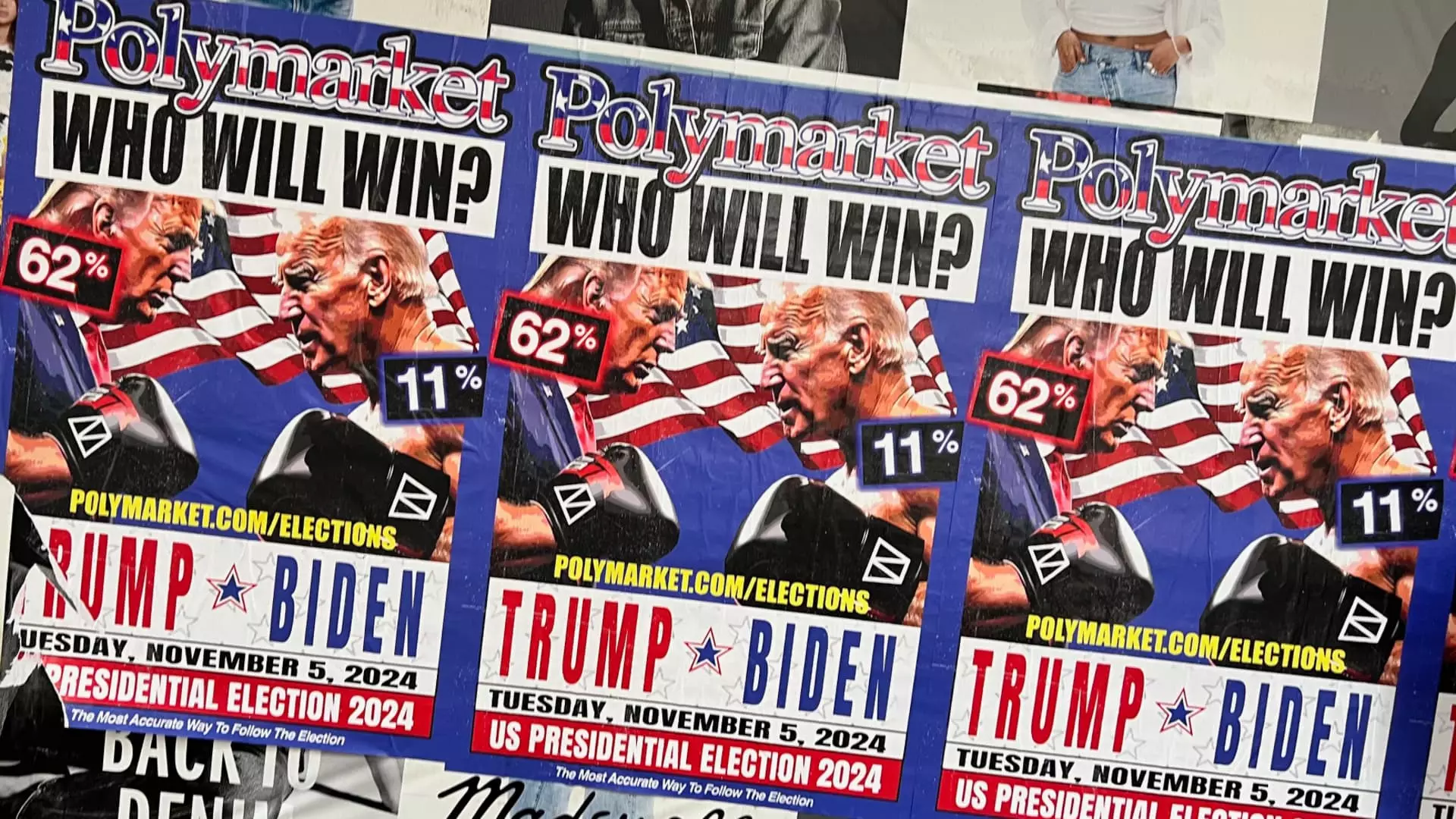The world of online political prediction markets is witnessing a transformative moment as platforms like Polymarket make plans to re-enter the U.S. market, having previously paused operations due to regulatory challenges. The surge of interest in prediction markets, particularly after Polymarket’s accurate forecast of Donald Trump’s electoral victory, has prompted a reevaluation of their potential and viability. Shayne Coplan, the founder and CEO of Polymarket, credits the advocates who have tirelessly fought for the legalization of these markets in the United States. His remarks indicate an ambitious vision for expansion, recognizing a unique opportunity in the evolving landscape of political betting.
Polymarket’s prior suspension of U.S. operations in 2022, coupled with a substantial penalty from the Commodity Futures Trading Commission (CFTC), highlighted the regulatory uncertainties surrounding these platforms. However, a recent court ruling that lifted restrictions on competitor Kalshi presents new avenues for growth. This shift reflects a broader acceptance of prediction markets as valuable tools for gauging public sentiment and electoral outcomes, driven by financial incentives and the desire for reliable results.
At the crux of the attraction to prediction markets is the idea that financial stakes can yield more accurate predictions compared to traditional polls. As Vlad Tenev, CEO of Robinhood, points out, the involvement of real money infuses a level of seriousness and reliability into the outcomes of these markets. Participants are likely to conduct their research and analysis before wagering on outcomes, further enhancing the predictive power of these platforms. This contrasts with polling, which can be heavily influenced by sampling biases and snapshot perceptions rather than real-time data driven by monetary investment.
Furthermore, the endorsement of high-profile individuals like Elon Musk lends credibility to these markets. By asserting that Polymarket is “more accurate than polls” and celebrating its success on social media, Musk strengthens the perception that these platforms serve as barometers for public sentiment that can be trusted in ways that traditional polling sometimes fails to be.
As the political climate in the United States continues to evolve, platforms like Polymarket and others are positioned to capitalize on growing trends toward gambling and speculative investments in electoral outcomes. Thomas Peterffy, founder of Interactive Brokers, believes that prediction markets could eventually surpass the equities market in scale within the next 15 years. This perspective underscores the belief that the potential of political prediction markets extends far beyond mere entertainment, evolving into a critical aspect of financial markets.
The changing winds in Washington, coupled with the increasing influence of technology on political engagement, are altering the traditional dynamics of election forecasting. As more companies venture into this space, it opens up opportunities for innovation and competition, ultimately shaping how elections are perceived and understood. Interactive platforms foster community involvement and heighten awareness of electoral issues as participants seek to inform their betting strategies.
As Polymarket and its contemporaries embark on this new chapter, the implications for public discourse and democratic engagement are profound. The notion that markets can reflect the collective awareness and sentiment of society emphasizes the potential for increased civic participation. By monetizing political outcomes, these platforms may also encourage individuals to become more informed about the political process, ultimately enhancing the democratic landscape.
However, the road ahead is fraught with challenges. The regulatory framework surrounding prediction markets remains a complex landscape that needs to be navigated carefully to ensure compliance and sustain growth. Public perception and acceptance of these markets will also play a crucial role in their longevity.
The resurgence of political prediction markets like Polymarket signifies a pivotal moment in the intersection of technology, finance, and democracy. As these platforms evolve, they not only offer new opportunities for investors but also foster a more engaged and informed electorate. The future looks promising for political betting, but stakeholders must remain vigilant in upholding ethical standards and ensuring that these markets serve as constructive tools for societal progress.

Leave a Reply